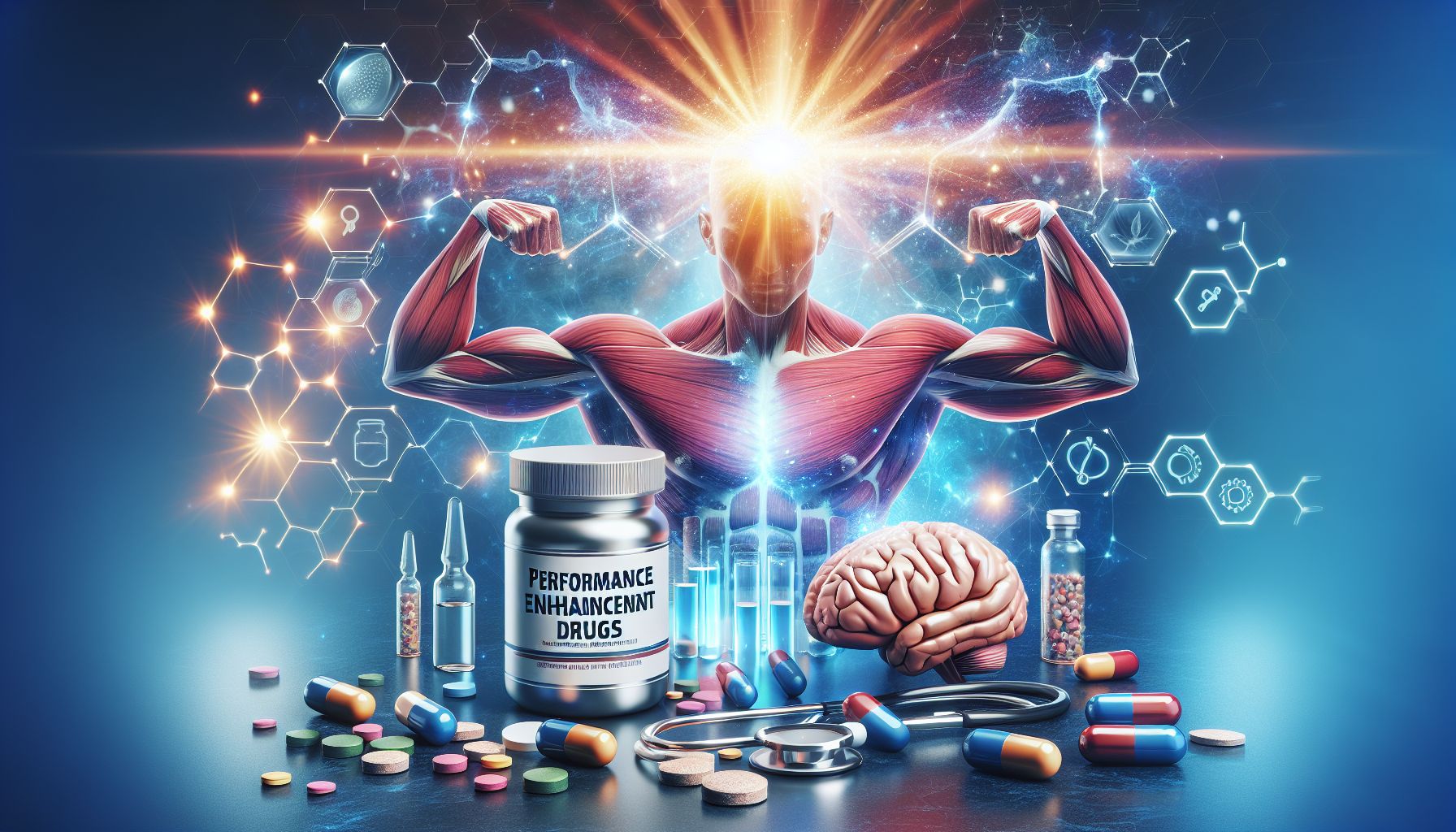
Performance Enhancement Drugs: Boosting Your Potential
What Are Performance Enhancement Drugs?
Performance enhancement drugs (PEDs) are substances used to improve any form of activity performance in humans. These drugs encompass a broad range of substances, each designed to enhance specific physical or cognitive abilities. Commonly used by athletes, bodybuilders, and individuals seeking increased productivity or improved physical appearance, PEDs are controversial due to their potential health risks and ethical concerns.
Types of Performance Enhancement Drugs
1. Anabolic Steroids: These are synthetic variations of the male sex hormone testosterone. They promote muscle growth and increase strength. Common examples include Dianabol and Stanozolol.
2. Stimulants: Substances like caffeine, ephedrine, and amphetamines can increase alertness and reduce fatigue. They are often used to enhance cognitive performance or energy levels during physical tasks.
3. Erythropoietin (EPO): Used primarily to increase red blood cell production, improving oxygen delivery to muscles, which enhances endurance.
4. Human Growth Hormone (HGH): This naturally occurring hormone supports growth, cell repair, and metabolism. Synthetic HGH is used to improve muscle mass and recovery times.
5. Beta Blockers: Used to reduce anxiety and enhance concentration, especially in precision sports like shooting.
6. Creatine: A legal supplement that can boost muscle power and help in quicker recovery between exercises.
How to Use Performance Enhancement Drugs
When considering the use of PEDs, it’s essential to be informed about proper dosages, potential risks, and legal aspects that vary across countries. Consulting with healthcare professionals is crucial:
– Anabolic Steroids: Typically injected or taken orally. Dosages vary, generally between 20-100 mg/day, depending on the specific drug and intended outcomes.
– Erythropoietin (EPO): Administered via subcutaneous injection. Dosages and cycling depend on the desired increase in red blood cells.
– Human Growth Hormone (HGH): Injected subcutaneously with dosages ranging from 1-3 IU per day for anti-aging and muscle growth benefits.
– Creatine: Taken as a powder mixed with liquid, with recommended loading phases of 20 grams per day for a week, followed by a maintenance dose of 3-5 grams daily.
Always adhere to recommended dosages and consult a healthcare provider to mitigate risks and ensure safe usage.
Benefits and Risks
While the allure of improved performance is undeniable, PEDs come with potential side effects:
– Anabolic Steroids: May cause liver damage, high blood pressure, aggressive behaviors, and infertility.
– Stimulants: Risk of dependency, increased heart rate, and potential cardiovascular issues.
– EPO: Increased risk of blood clots, heart attacks, and strokes.
– HGH: Joint and muscle pain, insulin resistance, and potential enlargement of body organs.
– Creatine: Generally safe but can cause digestive issues and dehydration if not consumed with sufficient water.
Expert Opinions on Performance Enhancement Drugs
According to Dr. Jane Smith, a leading sports medicine expert, “While performance enhancement drugs can offer significant benefits when used correctly, the dangers of misuse cannot be overstated. Users must be fully aware of the health risks and legal implications.”
Pharmacist John Doe adds, “The key is informed usage. Athletes should prioritize natural methods and only consider PEDs under professional guidance.”
Legal Considerations and Purchasing
The legal status of PEDs varies globally. In many regions, the use of anabolic steroids and other potent PEDs without a prescription is illegal. Potential users should research local regulations to ensure compliance.
If you decide, under medical guidance, that PEDs are suitable for your goals, find a reputable source and consider our site for reliable options. Explore our options by visiting this link for Performance Enhancement Products.
Resources for Further Information
For those interested in exploring more about PEDs, reputable resources include:
– World Anti-Doping Agency (WADA): Offers comprehensive guidelines on banned substances and doping control.
– National Institute on Drug Abuse (NIDA): Provides in-depth information on the effects and risks of drug abuse on health.
– Mayo Clinic: A trusted resource for understanding the medical implications of PEDs.
Ayurveda and natural alternatives often provide less risky options for performance enhancement, ensuring safer practices while achieving desired results.
Explore these natural approaches with our comprehensive guide to safe performance enhancement.
